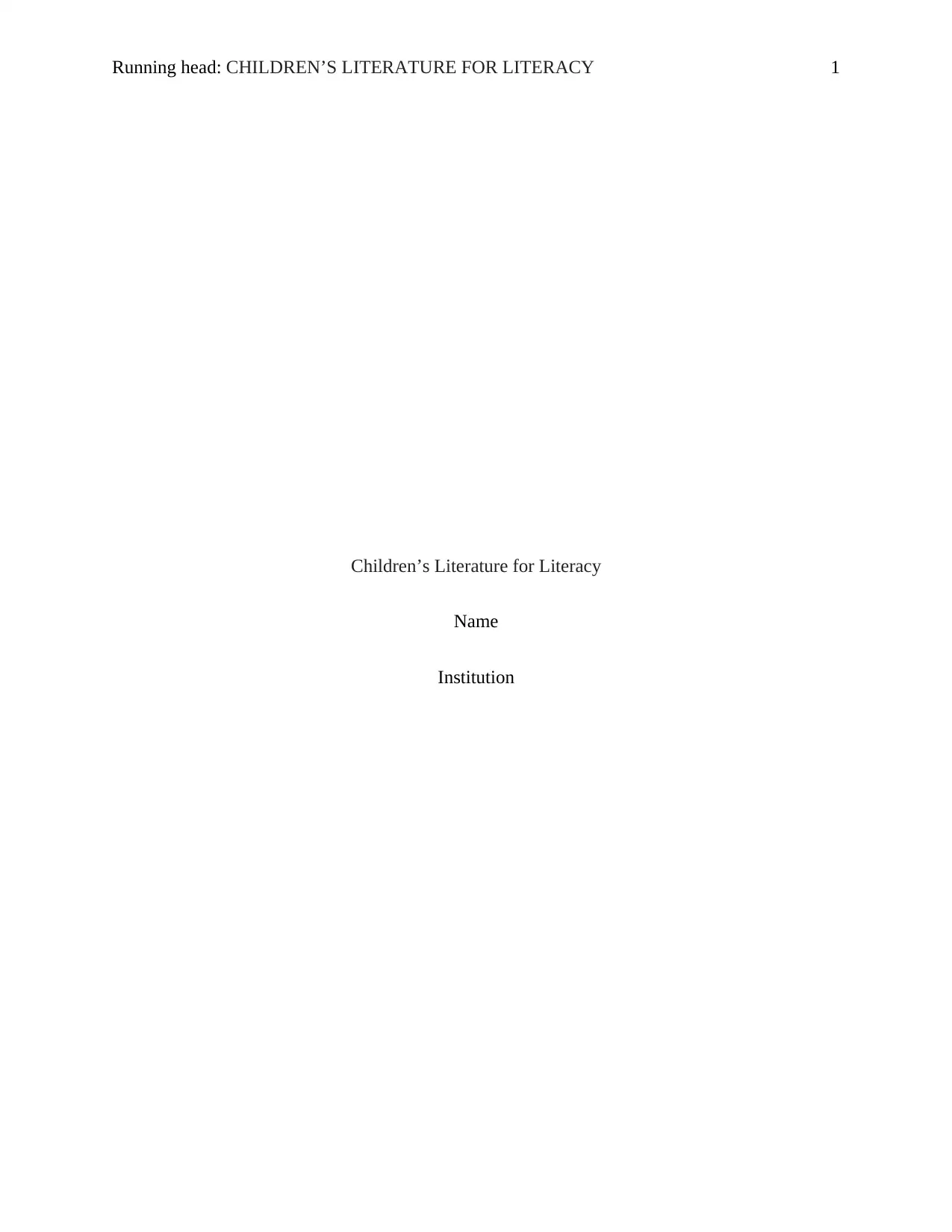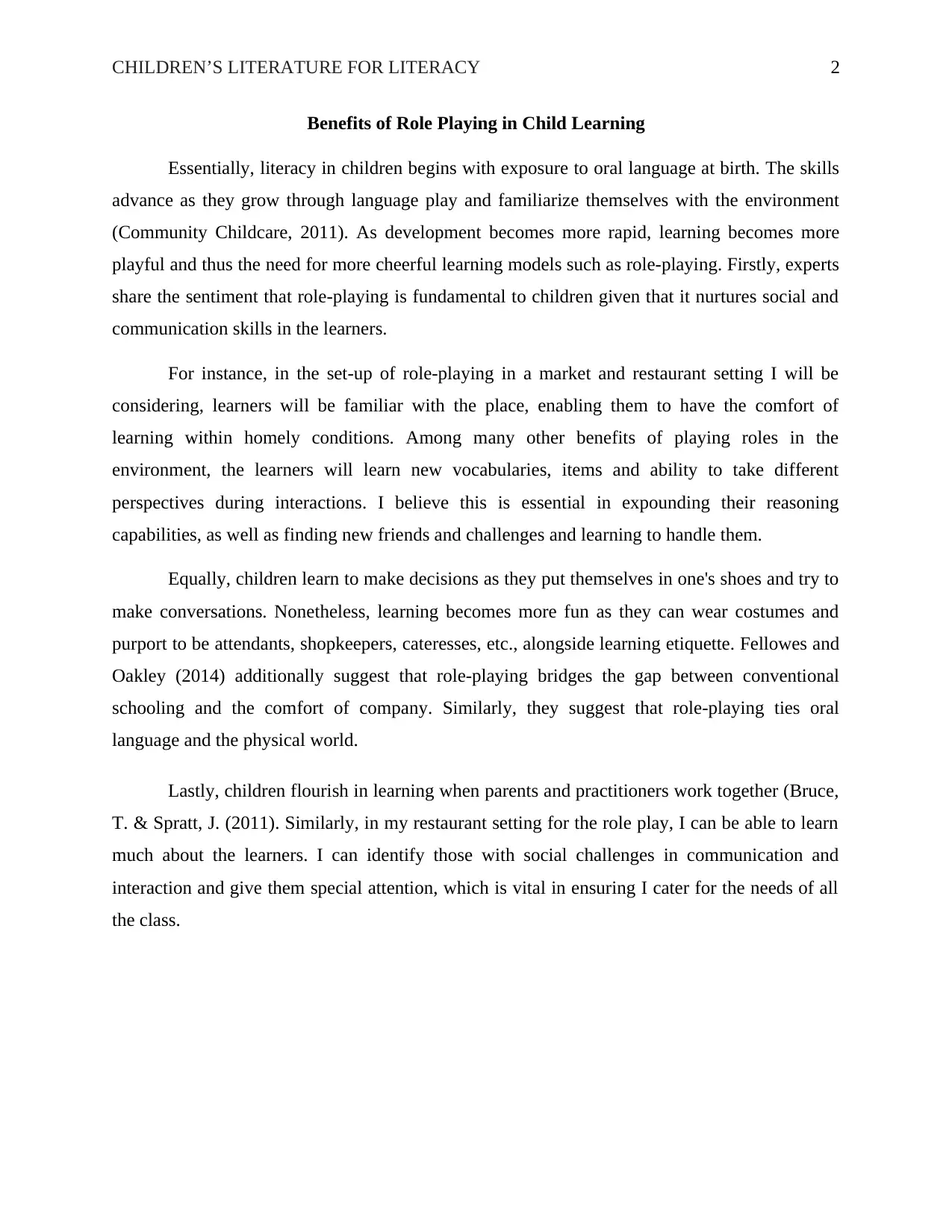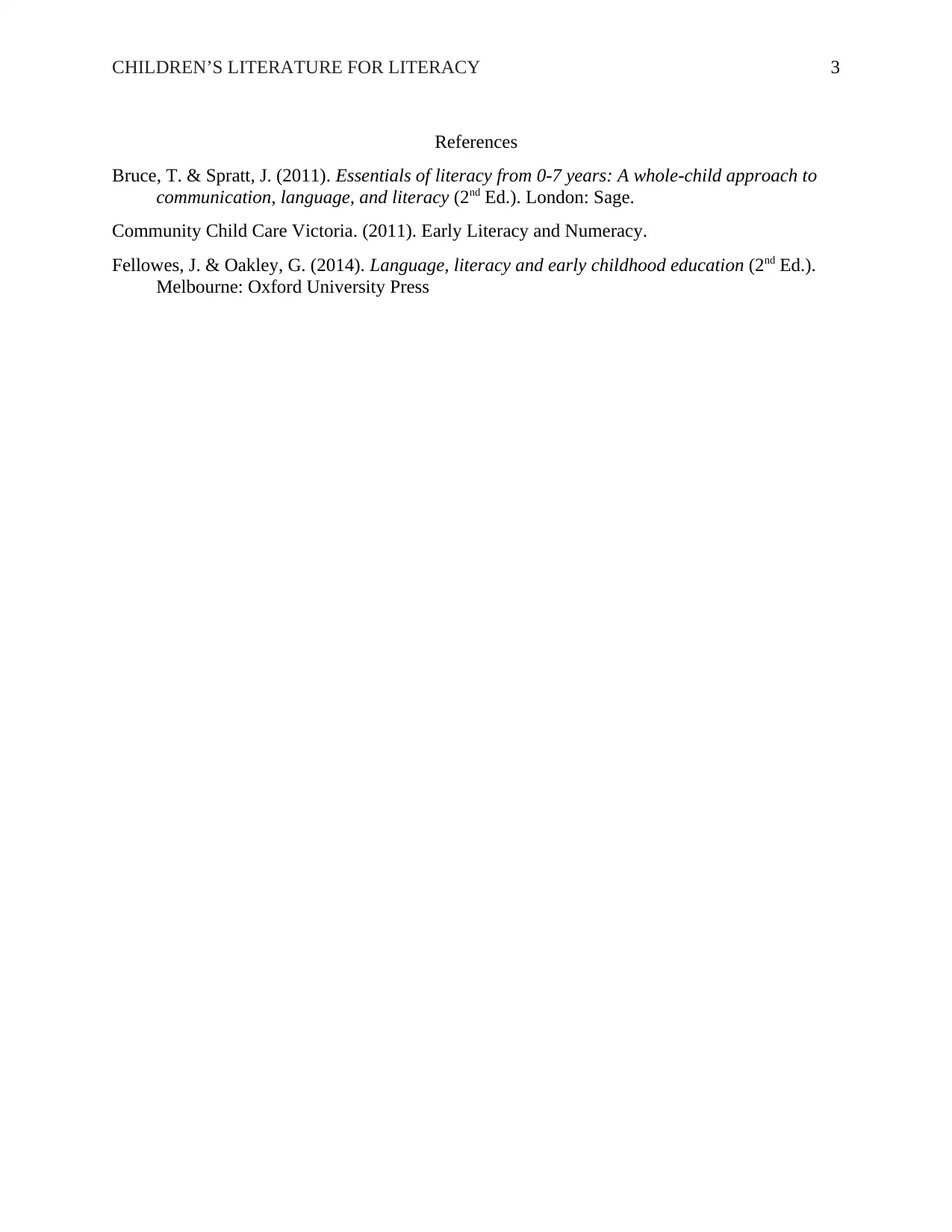Exploring the Impact of Role-Playing on Children's Literacy
VerifiedAdded on 2020/04/07
|3
|452
|78
Homework Assignment
AI Summary
This assignment delves into the significant role of role-playing in fostering literacy skills in children. It begins by highlighting the importance of oral language and how it evolves through playful interactions. The paper emphasizes that role-playing nurtures essential social and communication skills, using examples such as a market and restaurant setting to illustrate how children can learn new vocabularies, engage in decision-making, and adopt different perspectives. Furthermore, the assignment references the work of Fellowes and Oakley (2014) to underscore the connection between role-playing, oral language, and the physical world, as well as the importance of collaboration between parents and educators. It concludes by emphasizing how role-playing can help educators identify and address individual learning challenges. The assignment is contributed by a student to be published on Desklib, a platform providing AI-based study tools.
1 out of 3







![[object Object]](/_next/static/media/star-bottom.7253800d.svg)